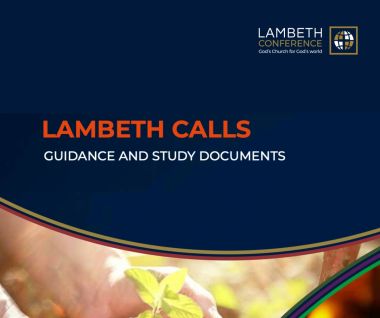What now for orthodox Anglican bishops at the Lambeth Conference?

How are the orthodox Anglican bishops at the Lambeth Conference going to react now that the organisers have caved in to politically correct pressure to drop the traditional Christian sexual ethic as the "mind of the Anglican Communion"?
There should be no doubt that this is what the organisers have done in changing the wording of the Lambeth Call on Human Dignity.
Liberals in the Anglican Communion's Western churches last week created such a furore that they have succeeded in preventing Lambeth Resolution 1.10 - which the 1998 conference passed "rejecting homosexual practice as incompatible with Scripture" - from being reaffirmed at Lambeth 2022.
The study document circulated last week to the 650 bishops from around the world attending the conference now underway in Canterbury was unequivocal about what "the mind of the Anglican Communion" was on the Christian sexual ethic:
"It is the mind of the Anglican Communion as a whole that same gender marriage is not permissible. Lambeth Resolution I.10 (1998) states that the 'legitimizing or blessing of same sex unions' cannot be advised.
"It is the mind of the Communion to uphold 'faithfulness in marriage between a man and a woman in lifelong union' (I.10, 1998). It is also the mind of the Communion that 'all baptized, believing and faithful persons, regardless of sexual orientation are full members of the Body of Christ' and to be welcomed, cared for, and treated with respect (I.10, 1998)."
But following an apologetic statement on Monday from the chair of the Lambeth Calls Sub-group, Bishop Tim Thornton, the organisers this week changed the wording. Bishops will now vote on a radically different version of "the mind of the Anglican Communion":
"It is the mind of the Anglican Communion as a whole that 'all baptised, believing and faithful persons, regardless of sexual orientation are full members of the Body of Christ' and to be welcomed, cared for, and treated with respect (I.10, 1998).
"Many Provinces continue to affirm that same gender marriage is not permissible. Lambeth Resolution I.10 (1998) states that the 'legitimizing or blessing of same sex unions' cannot be advised. Other Provinces have blessed and welcomed same sex union/marriage after careful theological reflection and a process of reception. As Bishops we remain committed to listening and walking together to the maximum possible degree, despite our deep disagreement on these issues."
So, according to the revised Call on Human Dignity, "the mind of the Anglican Communion" is now that Christians can legitimately agree to disagree on the traditional biblical sexual ethic.
The heterosexual nature of marriage and the exclusive role of sexual love within that God-created institution have now become a secondary issue. Anglicans can be "faithful" whatever view they take on the question of whether or not God approves of same-sex marriage and of sex outside man-woman marriage.
But that is not how the majority of Anglicans globally see it. The orthodox archbishops and bishops of the Anglican churches in Nigeria, Uganda and Rwanda are boycotting the conference because they are not prepared to compromise on that issue. Given the politicking at Lambeth 2022 over the Call on Human Dignity, their stand has very arguably been vindicated.
Around 270 orthodox bishops in the Global South Fellowship of Anglican Churches (GSFA), led by the Archbishop of South Sudan, Justin Badi Arama, are attending Lambeth. What should they do now that Lambeth 1.10 has effectively been ditched?
A parable may shed some light on that question - please note that this is a parable and not an allegory, so not every element in the story corresponds to a current factual or legal reality:
A Christian teenager is invited to a party by a member of the cool set at his or her school. "You can go," their parents say, "provided there are no illegal drugs at the party."
The teenager is assured by their friend that the party will be drugs-free. "Great, I look forward to it."
But come Saturday night a strong whiff of marijuana is wafting over the dance floor and 'golden brown' is being sniffed on the stairs and in the kitchen.
The teenager says to their friend: "But you assured me there would be no drugs here."
"Chill out, dude. Can't we just agree to differ on this? You don't have to take them. Why be so holier-than-thou towards those of us who do?"
This Christian teenager thus faces a choice between acceptance in their peer group and obedience to their parents' word.
Lambeth 2022 is the Archbishop of Canterbury's party. Justin Welby is the host. What should the orthodox bishops, who accepted his invitation and have come to his party, do now that he has permitted a primary issue of biblical faithfulness to be relegated to a secondary status and thus relativised?
Should they not do what the teenager in the parable should have done and leave the party?
Julian Mann is a former Church of England vicar, now an evangelical journalist.











